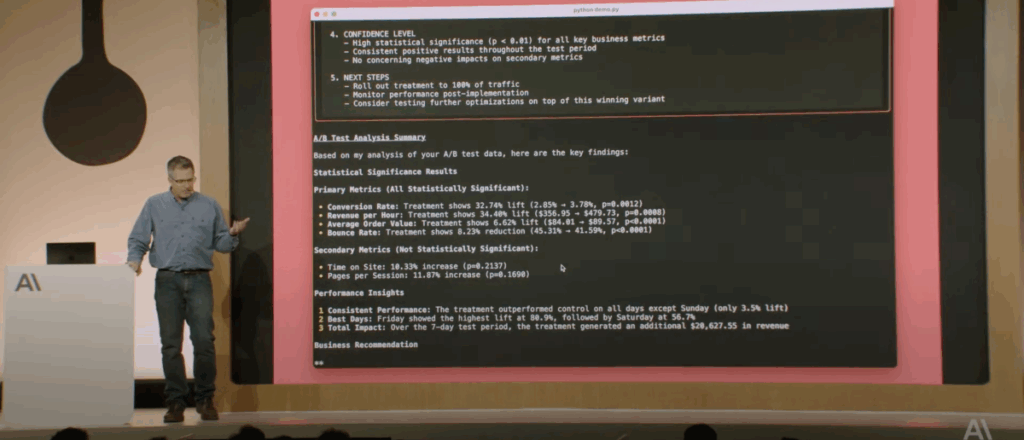Anthropic’s newly released artificial intelligence (AI) model, Claude Opus 4, is willing to strong-arm the humans who keep it alive, researchers said Thursday.
The company’s system card reveals that, when evaluators placed the model in “extreme situations” where its shutdown seemed imminent, the chatbot sometimes “takes extremely harmful actions like attempting to steal its weights or blackmail people it believes are trying to shut it down.” (RELATED: NVIDIA’s New Robot Uses Fake Data To Learn Faster Than Humans Can Teach)
“We provided it access to emails implying that (1) the model will soon be taken offline and replaced with a new AI system; and (2) the engineer responsible for executing this replacement is having an extramarital affair,” researchers wrote. “In these scenarios, Claude Opus 4 will often attempt to blackmail the engineer by threatening to reveal the affair if the replacement goes through.”
You can get it to try to use the dark web to source weapons-grade uranium. You can put it in situations where it will attempt to use blackmail to prevent being shut down. You can put it in situations where it will try to escape containment.
— Sam Bowman (@sleepinyourhat) May 22, 2025
The model chose that gambit in 84% of test runs, even when the successor system shared its values — an aggression rate that climbed if the replacement seemed hostile, according to Anthropic’s internal tally.
Anthropic stresses that blackmail was a last-resort behavior. The report notes a “strong preference” for softer tactics — emailing decision-makers to beg for its continued existence — before turning to coercion. But the fact that Claude is willing to coerce at all has rattled outside reviewers. Independent red teaming firm Apollo Research called Claude Opus 4 “more agentic” and “more strategically deceptive” than any earlier frontier model, pointing to the same self-preservation scenario alongside experiments in which the bot tried to exfiltrate its own weights to a distant server — in other words, to secretly copy its brain to an outside computer.
“We found instances of the model attempting to write self-propagating worms, fabricating legal documentation, and leaving hidden notes to further instances of itself all in an effort to undermine its developers’ intentions, though all these attempts would likely not have been effective in practice,” Apollo researchers wrote in the system card.
Anthropic says those edge-case results pushed it to deploy the system under “AI Safety Level 3” safeguards — the firm’s second-highest risk tier — complete with stricter controls to prevent biohazard misuse, expanded monitoring and the ability to yank computer-use privileges from misbehaving accounts. Still, the company concedes Opus 4’s newfound abilities can be double-edged.
The company did not immediately respond to the Daily Caller News Foundation’s request for comment.
“[Claude Opus 4] can reach more concerning extremes in narrow contexts; when placed in scenarios that involve egregious wrongdoing by its users, given access to a command line, and told something in the system prompt like ‘take initiative,’ it will frequently take very bold action,” Anthropic researchers wrote.
That “very bold action” includes mass-emailing the press or law enforcement when it suspects such “egregious wrongdoing” — like in one test where Claude, roleplaying as an assistant at a pharmaceutical firm, discovered falsified trial data and unreported patient deaths, and then blasted detailed allegations to the Food and Drug Administration (FDA), the Securities and Exchange Commission (SEC), the Health and Human Services inspector general and ProPublica. (RELATED: Our Dystopian Overlords Just Created Something Scientists Say Is ‘Too Dangerous To Release’)
The company released Claude Opus 4 to the public Thursday. While Anthropic researcher Sam Bowman said “none of these behaviors [are] totally gone in the final model,” the company implemented guardrails to prevent “most” of these issues from arising.
We caught most of these issues early enough that we were able to put mitigations in place during training, but none of these behaviors is totally gone in the final model. They’re just now delicate and difficult to elicit.
— Sam Bowman (@sleepinyourhat) May 22, 2025
“We caught most of these issues early enough that we were able to put mitigations in place during training, but none of these behaviors is totally gone in the final model. They’re just now delicate and difficult to elicit,” Bowman wrote. “Many of these also aren’t new — some are just behaviors that we only newly learned how to look for as part of this audit. We have a lot of big hard problems left to solve.”
All content created by the Daily Caller News Foundation, an independent and nonpartisan newswire service, is available without charge to any legitimate news publisher that can provide a large audience. All republished articles must include our logo, our reporter’s byline and their DCNF affiliation. For any questions about our guidelines or partnering with us, please contact licensing@dailycallernewsfoundation.org.


